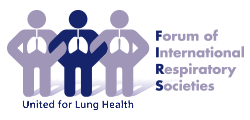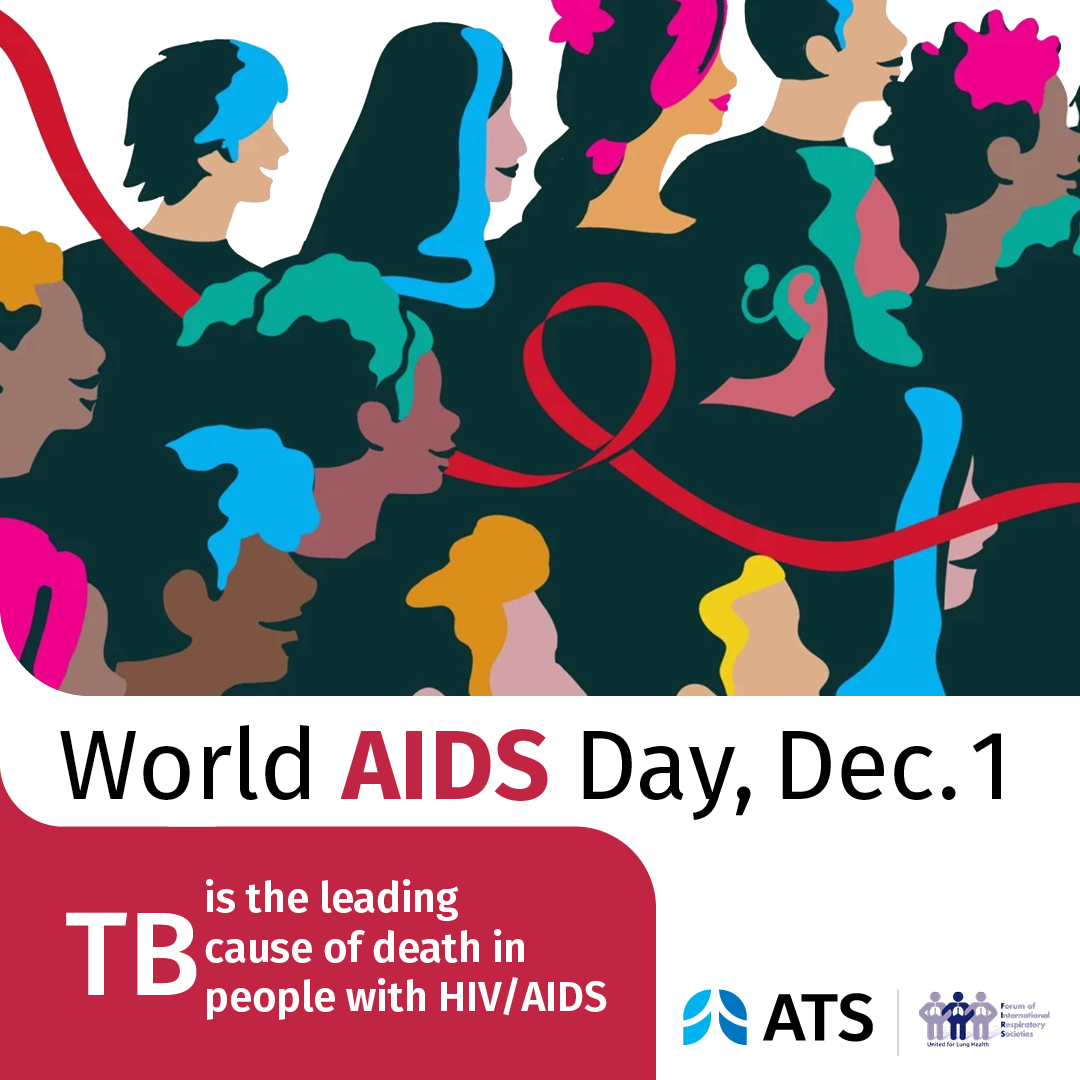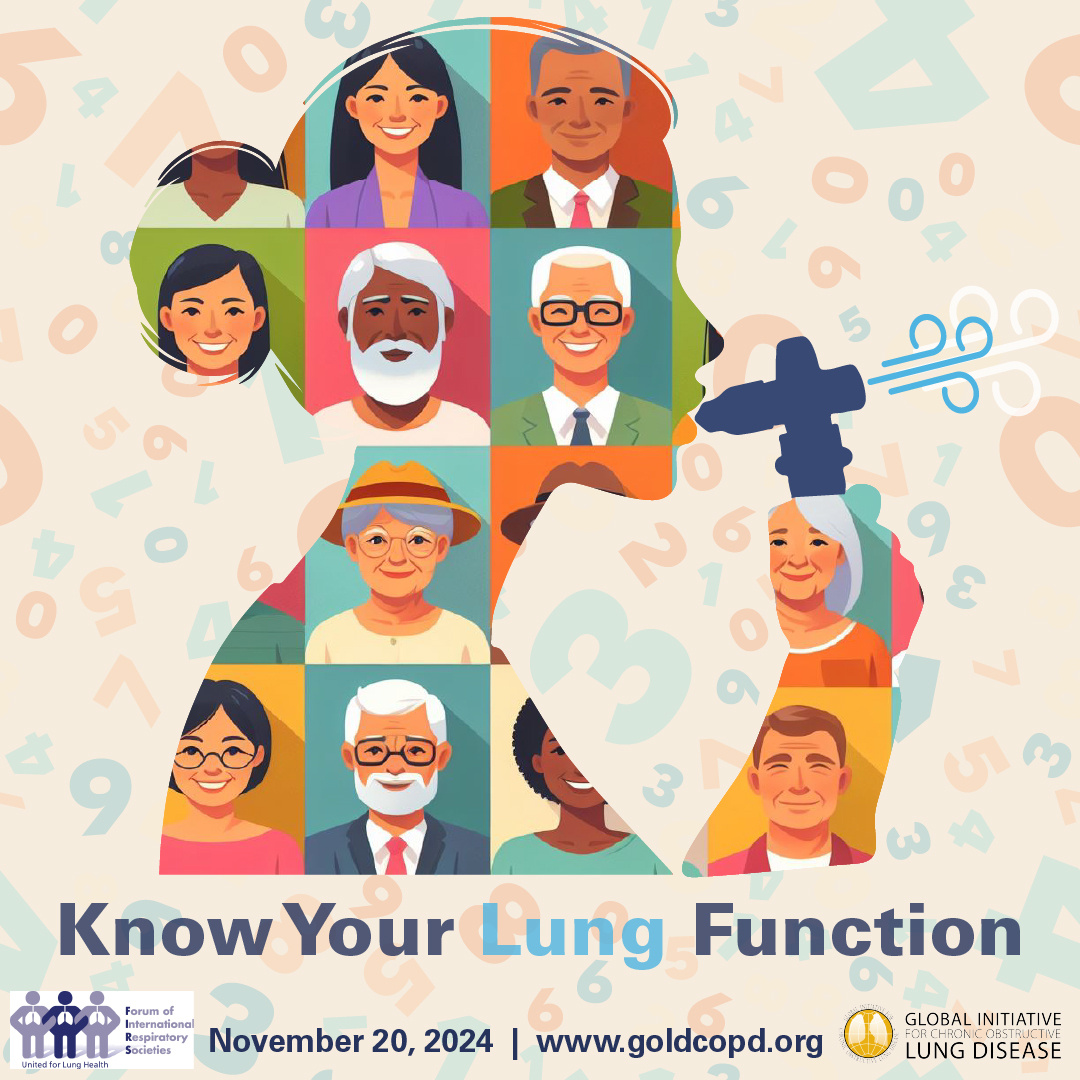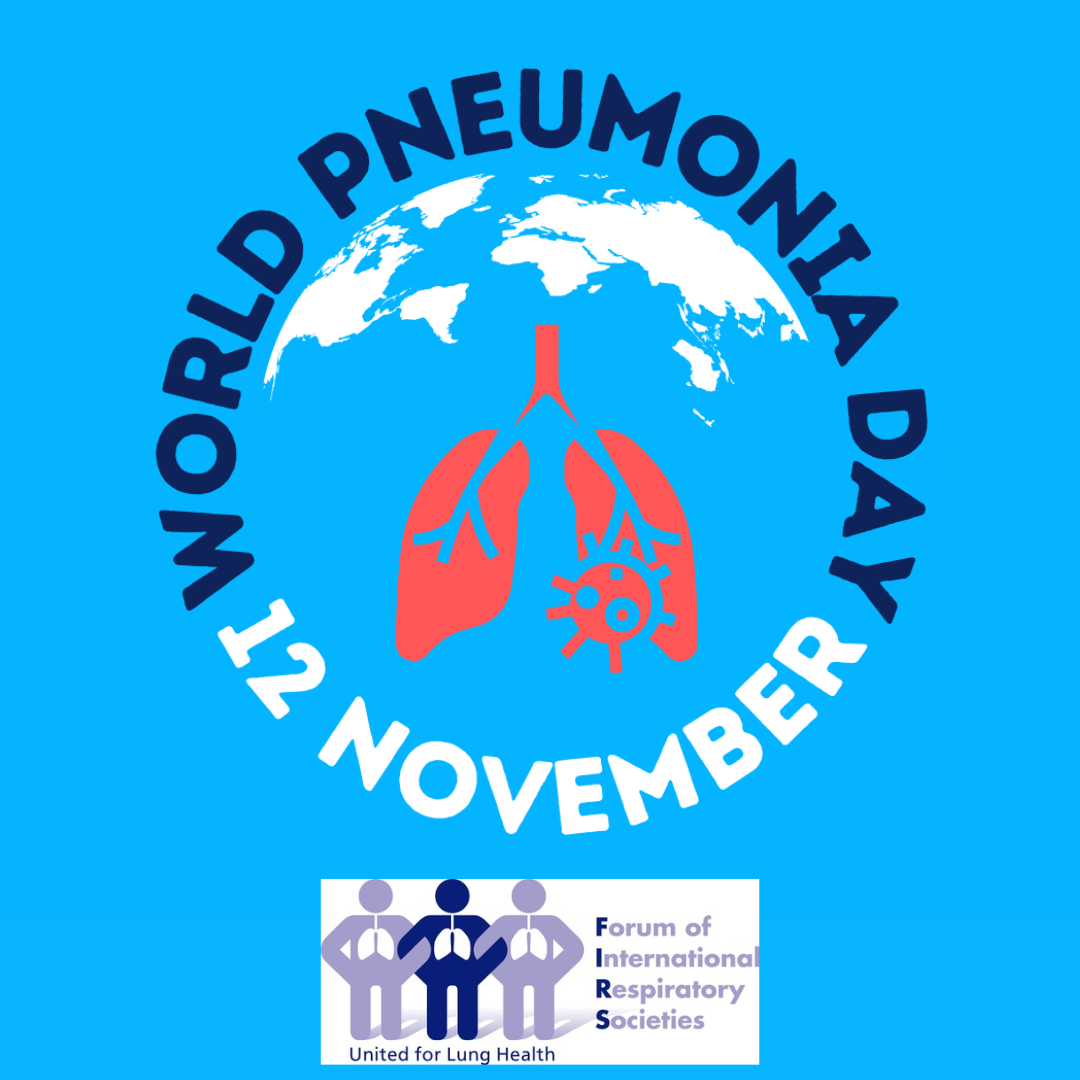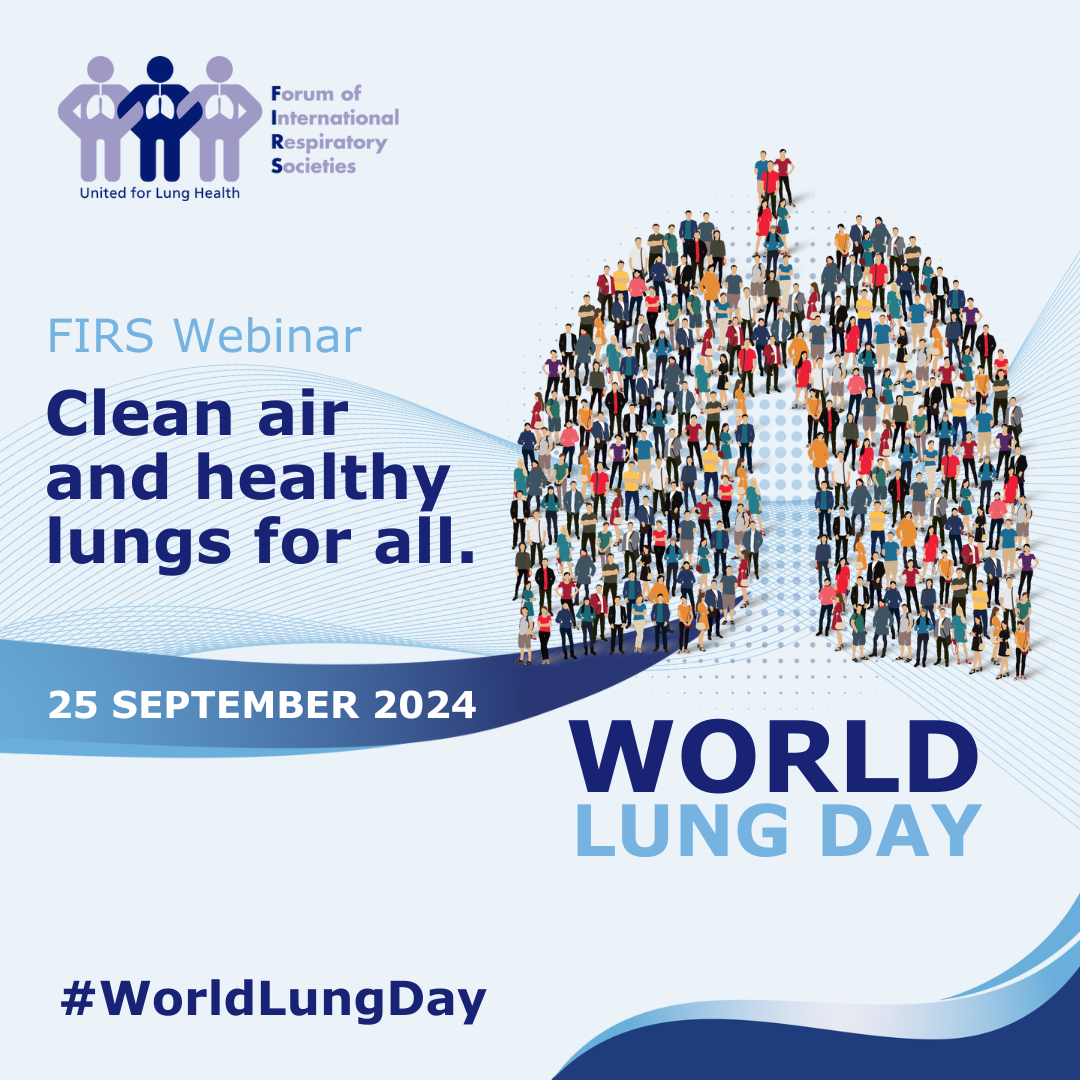INVESTMENT AND ACTION NEEDED TO END TB
Cape Town, Glenview, Lausanne, Montevideo, New York, Paris, Tokyo, March 24, 2016 -In support of World TB Day, 24 March, the Forum of International Respiratory Societies (FIRS) calls for united efforts to mobilise the financial and human resources to end tuberculosis (TB).
World TB Day this year comes on the cusp of a new era driven by the Sustainable Development Goals and other ambitious plans, such as those set by the End TB Strategy and the Global Plan to End TB, 2016-2020, which together aim to end TB as a global health problem by 2035. To meet this goal, we must bring about a paradigm shift in the global fight against TB. We cannot continue with business as usual.
TB is curable in the vast majority of cases, and yet slow progress against the disease means that it now kills more people annually than any other communicable disease. According to the World Health Organization, 9.6 million people developed TB in 2014 and 1.5 million people died from the disease. This includes 1 million children who became sick with TB and 140,000 who died as a result of it.
About one in three people with TB are never diagnosed. If they are not diagnosed, they will never be treated, and if they are not treated, the disease will spread. Therefore, our efforts must be to identify people with active TB and get them to treatment promptly. This can be difficult because up to a third of the world may be living with latent TB. Treating people with latent TB who are at high risk for developing active disease stops the process before it has the opportunity to cause serious active disease. People have a right to know their TB status and receive treatment for latent TB.
The fight against TB is being hampered by a crisis caused by the spread of deadly drug-resistant strains. The spread of multidrug-resistance TB (MDR-TB) represents one of the biggest threats to eliminating TB. Of the 480,000 people who developed MDRTB in 2014, three quarters of them did not know their TB was resistant. Only half of people diagnosed with MDR-TB are treated successfully.
We have new diagnostic tools and new treatments. We need to find the best use for them and to build on these advances. With the elimination of tuberculosis as the goal, we must unite to find the critical investments needed in drug and vaccine development, new programmes for diagnosis and treatment, community-led solutions, and the protection of the health workers who put themselves at risk every day. Governments and private-sector partners must work together to invest US $2 billion annually in the research and development of new TB diagnostics, medicines, and a vaccine.
This year’s World TB Day theme is ‘Unite to End TB.’ The Global Plan to End TB 2016-2020 lays out the steps we must take together to put the world on track to end TB. FIRS calls on all countries of the world to take the actions necessary to implement the plan, which provides guidance based on local epidemiological trends, rooted in human rights and gender equity, that delivers people-centred treatment and care with a focus on communities most heavily impacted by TB.
Sources:
World Health Organization. 2015. Global Tuberculosis Report 2015.
Stop TB Partnership. 2015. Global Plan to End TB, 2016-2020.
About the Forum of International Respiratory Societies (FIRS)
The Forum of International Respiratory Societies (FIRS) is an organization comprised of the world’s leading international respiratory societies working together to improve lung health globally: American Thoracic Society (ATS), American College of Chest Physicians (CHEST), Asociación Latinoamericana De Tórax (ALAT), Asian Pacific Society of Respirology (APSR), European Respiratory Society (ERS), International Union Against Tuberculosis and Lung Disease (The Union) and the Pan African Thoracic Society (PATS). The goal of FIRS is to unify and enhance efforts to improve lung health through the combined work of its more than 70,000 members globally.
